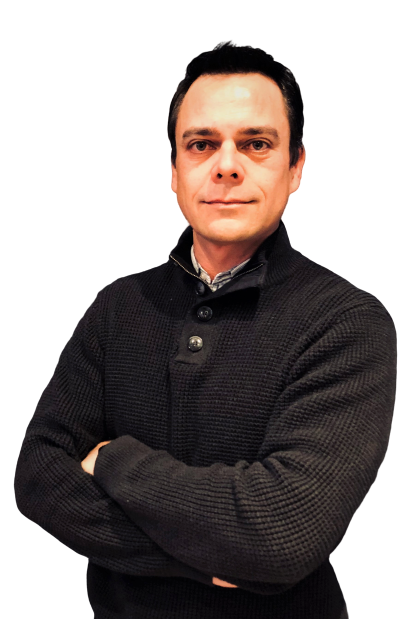About Dr JC Coetzee

Dr JC Coetzee is a clinical psychologist, business owner, and entrepreneur with over 20 years of experience in both clinical and organisational settings. He holds a Doctorate of Philosophy in Psychiatry and has devoted his career to understanding human behaviour, mental health, and organisational dynamics. Dr Coetzee’s academic journey includes a Bachelor’s in Psychology and Theology, an Honours in Psychology, and a Master’s in Clinical Psychology, culminating in a doctoral thesis on the lived experience of loneliness among psychiatric patients from an existential philosophical perspective.
His clinical expertise is further enriched by his work in academia, where he has played a significant role in the education and mentorship of future psychologists. Dr Coetzee has extensively supervised and mentored psychology, medical students, and qualified professionals. He has also been extensively involved in individual and group work focused on Stoic principles in the clinical space. Dr Coetzee is actively involved in his local Stoic community.
As a business owner and entrepreneur in the digital marketing sector, Dr Coetzee integrates Stoic principles into his professional endeavours. His approach to entrepreneurship is grounded in Stoic philosophy, remaining calm under pressure and focusing on controlling what he can and accepting what he cannot. This mindset has enabled him to successfully manage the challenges of running a business while balancing his clinical practice, consultancy, and organisational roles.
Dr Coetzee’s commitment to practical wisdom and calm decision-making, rooted in Stoic philosophy, has enriched his professional life and enhanced his effectiveness as a mentor, clinician, and business owner.
How I Came to Practice Stoicism
My Personal Journey with Stoicism

My journey with Stoicism began long before I fully understood the philosophy’s name or origins. From a young age, I was naturally curious about the world and found myself reflecting deeply on the larger questions of existence. I was always drawn to pondering life’s meaning, the nature of human suffering, and the pursuit of happiness. These early reflections became the foundation of a lifelong passion for philosophy, which eventually intertwined with my professional career in ways I hadn’t initially anticipated.
During my undergraduate studies, I chose to pursue degrees in both theology and psychology. Studying theology and psychology allowed me to explore the profound questions that had intrigued me since childhood, but I became captivated by the broader philosophical discussions surrounding human existence and the search for meaning. This growing interest led me to existential philosophy, where I found a framework that helped me understand the complexities of human experience. Existential philosophy, with its emphasis on individual freedom, choice, and responsibility, resonated deeply with my personal beliefs and professional aspirations.
At the same time, my studies in psychology provided practical insights into human behaviour, complementing my philosophical interests. Through my psychology courses, I encountered cognitive behavioural therapy (CBT) and rational emotive behaviour therapy (REBT), both of which drew heavily on Stoic principles. This intersection of psychology and Stoicism fascinated me, as it provided a tangible connection between ancient wisdom and modern therapeutic practices. It was around this time that I began to study Stoic philosophy more intensively.
Initially, Stoicism piqued my interest as a historical school of thought, but as I delved deeper, I began to see its profound relevance to modern psychology. The Stoic emphasis on rational thinking, emotional regulation, and focusing on what is within one’s control mirrored the core tenets of CBT and REBT, bridging the gap between my philosophical and psychological pursuits.
This realisation marked a turning point in both my personal and professional life. I immersed myself in the works of ancient Stoic philosophers such as Epictetus, Seneca, Musonius Rufus, and Marcus Aurelius. Through my studies, I found that Stoicism offered not just a theoretical understanding of human behaviour but also practical tools for managing life’s difficulties. The Stoic practices of negative visualisation, the dichotomy of control, the pursuit of virtue and an appreciation for the shortness of life, became integral to my approach to both professional practice and daily life.
My deepening engagement with Stoicism also transformed my personal routine. I incorporated Stoic practices into my daily life, starting each day with reflective reading from Stoic texts and ending it with a self-examination of my actions and thoughts. This commitment to daily practice allowed me to embody the Stoic principles I so admired, turning philosophy into a lived experience rather than merely an intellectual exercise.
In my professional work as a psychologist, I apply Stoic principles to help my clients navigate their own challenges. I encourage them to focus on what they can control, to accept what they cannot change, and to approach life’s difficulties with equanimity and resilience. This Stoic mindset has proven invaluable in my therapeutic practice, offering clients a way to reframe their experiences and cultivate inner strength.
My journey with Stoicism is a testament to the philosophy’s enduring relevance and practical value. What began as a youthful curiosity has evolved into a profound personal and professional commitment. Through Stoicism, I have found a guiding philosophy that not only informs my professional practice but also enriches my daily life, providing me with the tools to face challenges with grace, wisdom, and resilience.
As a practising Stoic, I view myself as continually evolving, striving to embody the virtues that Stoicism champions. The journey is ongoing, and I embrace each day as an opportunity to deepen my understanding and application of Stoic principles.
May the journey continue…